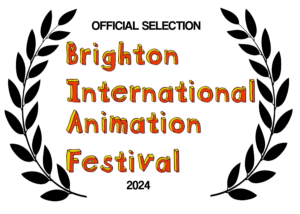This is what happened to my photograph that was in a show curated by @flashnine9 Lola Flash and @junorosenhaus Juno Rosenhaus of @dykearthaus Dyke+ ArtHaus.
As this show closes here on my thoughts. At the opening event wasn’t there some enthusiastic talk about “giving less fucks” as we become older dykes?
i am so frustrated with the inaction and obstruction of people who should know better. This moment in history calls for people to do some/anything to stop the genocide in Palestine, and everywhere. What people CANNOT morally do is to stop someone who is actually taking action to end suffering in the world. We know that not everyone can be in the streets, but people can plant food, buy gum from a child on the subway, attend online meetings, write imprisoned people, call their representatives or commit to taking care of nearby person who needs help. We use the opportunities we have.
I submitted a photo for consideration to be shown in an art show called “Dyke+ ArtHaus Visits the Bureau.” that would be held at the Bureau of General Services Queer Division. The photo was accepted on April 27, 2024, seven months after the full scale genocidal bombardment by Israel on Gaza began. The @BGSQD is a liberatory space that respects the cultural boycott that @PACBI and Palestinian activists have called for, including posting the boycott on the wall, and who reads a land acknowledgement before events held in the space.
So imagine my surprise May 17, 2024 at the opening when there was no mention of Palestine or any of the international catastrophes happening right now. The curators seemed content with the slogan “Buy Dyke Art” – leaving unquestioned the fact that capitalism is one of the core reasons the world is literally on fire. Being better consumers did not stop the AIDS crisis then or now. Attendees were not asked to wear masks, (my friends and i did) and i wore my “Saoirse don Phalaistín” shirt.
I returned to the BGSQD on June 16th and wrote “Stop The GENOCIDE” “Free Palestine” “From The River To The Sea” with marker across the full image. On June 20th I received a text with an image of my photo off the wall and the message “Hey Krissy, any chance you were the one who wrote on your piece in the bureau show?” and I texted back, “I did.”
When i arrived for the artist’s conversation on Jun 21, 2024, i saw that my photograph had been removed from the show. The curators did not tell me in advance that they had removed it. There was a video conversation on 6/23 to talk about the piece being removed which was poorly attended, only 7 (3 of those 7 being a facilitator, Juno and me) of the 40+ artists. Juno Rosenhaus attended but Lola Flash did not. Lola Flash sent an email the next day that said quote “I am sorry that I was unable to make the Zoom meeting yesterday. Though, I’m happy to hear that there was the opportunity to talk about this unfortunate (my words) situation.”
The photo was rehung 6/27 with a note stating “This piece was modified by the artist on June 16, 2024.”
Here are the reasons i am so disappointed:
Anti-Arab: It is racist and anti-Arab to assume that a pro-Palestine message was vandalism. I told Juno that I had written on it when she asked. In their initial message’s photo the piece had already been taken down. What if I had written “Yay Dykes!” on my own work? Would that have been seen as a criminal act? If the curators sincerely thought a random person had written on my piece, they should have told that i need to come quickly so i could clean the glass if i wanted to. They jumped to an assumption of a negative and criminal act — that is classic anti-Arab racism.
Zionist: Immediately removing an artwork with a pro-Palestine message reflects the normalization of colonial zionism. Why wasn’t there any mention of Palestine in the original curatorial statement of the show – a show happening during atrocities in Congo, Palestine, and Sudan? Why did they unilaterally remove an artwork that responded to the political/social context in which the show was happening? Who/what were they trying to protect?
Paternalistic: They knew i wrote on it, they asked me immediately — but still removed it. Did the curators feel they were protecting someone — either me or the other artists — or their reputations as curators? In a city where the Dyke March does not get a permit from the NYPD to march by the thousands, at a show with older lesbians proclaiming how they “give less fucks as we get older” and in the neighborhood where groups like Lesbian Avengers and ActUp did whatever it could do to get the government to support AIDS research! The curators to claim that they took the work down because i was “inconsiderate” and “it wasn’t the piece that what was selected by them.” Removing the photograph was not feminist, and their response after taking it down is ingenuous.
i will continue to do what i can to end forced starvation — with or without anyone’s permission. The only thing that keeps me going is that i still try to use my creativity in the service of a world where people and all the earth can survive. i participated in a 24-hour fast yesterday sponsored by the Nenagh Friends of Palestine, a solidarity group opposing the Israeli occupation of Palestine supporting a just and peaceful settlement to the conflict. i will continue to promote and observe #BDS, the cultural boycott of the apartheid state, and will continue to speak about Palestine at every opportunity i can, as i have done for the since the mid-1980s when we were also trying – and succeeded in freeing Nelson Mandela.

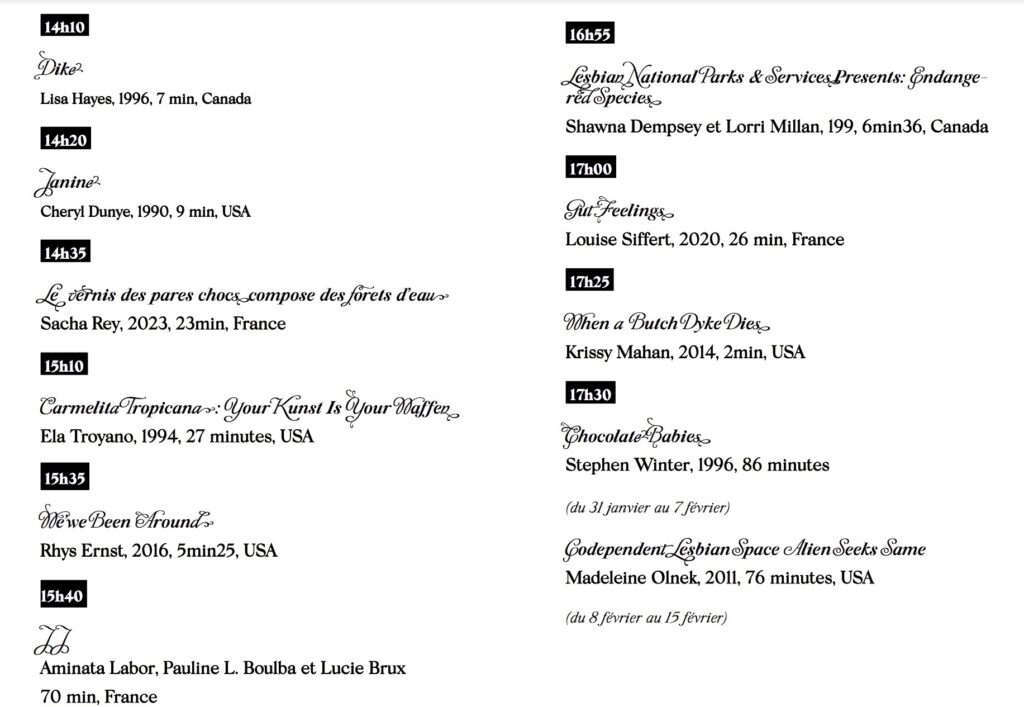
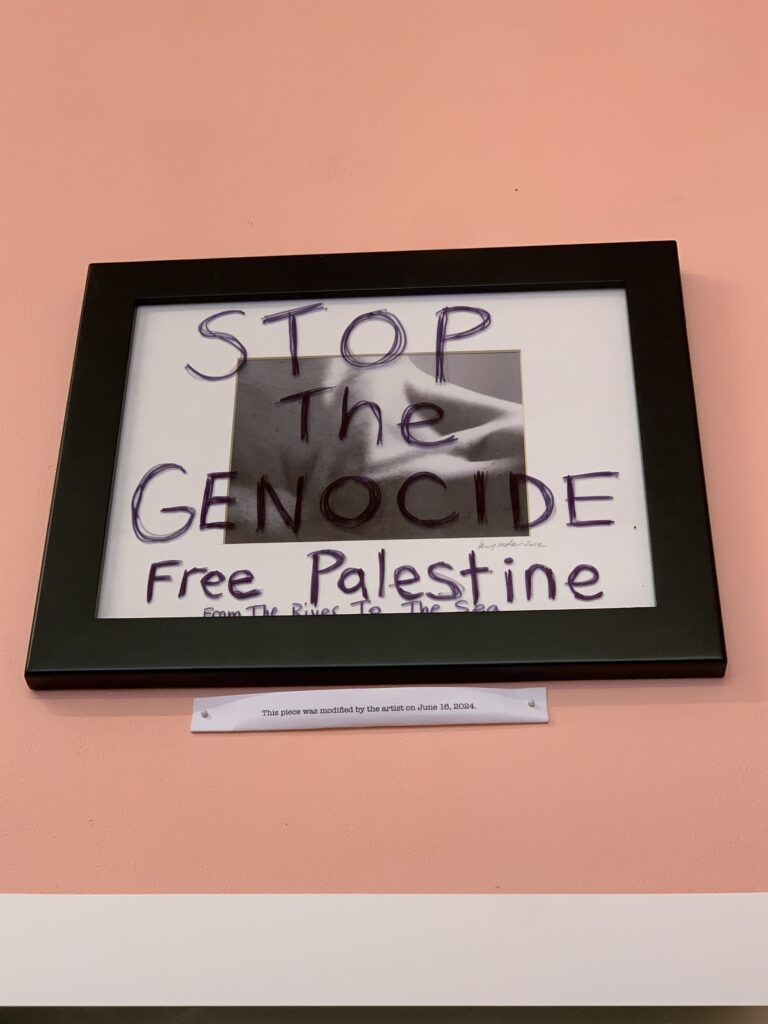
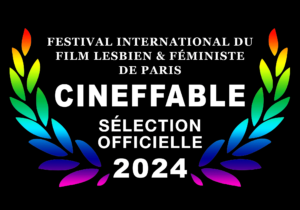
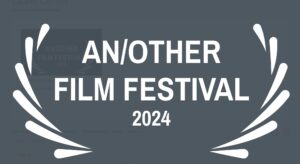
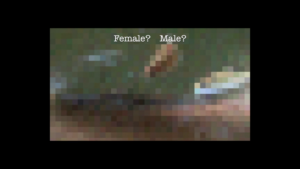
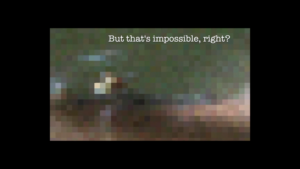
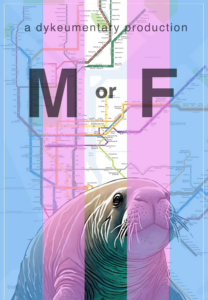 Warehouse
Warehouse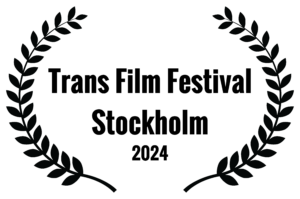
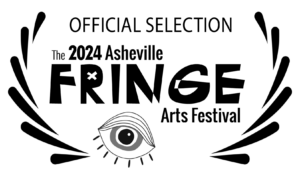 “A war profiteer with a gun takes a young working class woman cross country then chickens out when he (whoops I mean she) realizes that actions have consequences. What could go wrong????” Whose version of CAROL is aging better? This one. Lucky attendees of
“A war profiteer with a gun takes a young working class woman cross country then chickens out when he (whoops I mean she) realizes that actions have consequences. What could go wrong????” Whose version of CAROL is aging better? This one. Lucky attendees of 